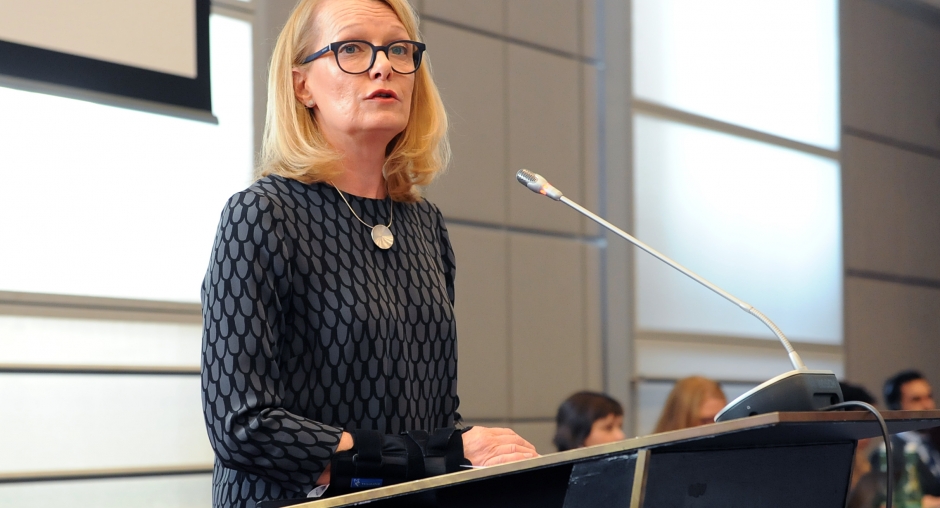



| Monday, 16 November 2015. | |
| Peace and security not attainable without meaningful inclusion of women in peace-building processes, say participants of Security Days event in Vienna | |
| + larger fontnormal font- Smaller font |
 Peace and security in societies cannot be achieved unless women are fully involved and meaningfully engaged in peace-building processes, said participants of the Security Days event in Vienna on 13 November 2015. Peace and security in societies cannot be achieved unless women are fully involved and meaningfully engaged in peace-building processes, said participants of the Security Days event in Vienna on 13 November 2015.The OSCE Security Days event, "In Pursuit of Peace and Security: How Gender Makes a Difference", served as a forum for exploring opportunities on how to apply a gender perspective to crisis prevention, conflict management, reconciliation and mediation, and post-conflict rehabilitation. Discussions covered a range of issues such as women in mediation and reconciliation processes, countering violent extremism and gender mainstreaming in security sector institutions. It gathered senior executives from national governments, parliamentarians, civil society leaders, prominent women's advocates and grassroots activists, representatives of international and regional organizations, academics and leading journalists from OSCE participating States and Partners for Co-operation. "Involving women throughout the conflict cycle is the best way to achieve comprehensive security," said OSCE Secretary General Lamberto Zannier. "Women have a rightful place at the negotiation table. In many conflicts, women have bridged the gap between opposing parties, even though their efforts have seldom been recognized. A failure to include women is a waste of resources and a wasted opportunity to use all possible factors to create sustainable peace." Ambassador Vuk Žugić, Chairperson of the OSCE Permanent Council, reminded participants that this year marks 15 years since the adoption of UN Security Council Resolution 1325 on women, peace and security. "Serbia is committed to the equal participation and full involvement of women in all efforts for maintaining peace and security both in Serbia and across the OSCE region," he said. In her keynote address, Lenita Toivakka, Finland's Minister for Foreign Trade and Development, said one of the biggest gaps in the implementation of Resolution 1325 concerns the participation of women in mediation and peace processes. "New research shows that meaningfully including women in a negotiating group increases the likelihood of achieving an agreement, as well as the sustainability of the agreement, thus paving the way towards more lasting and durable peace," she said. Michael Georg Link, Director of the OSCE Office for Democratic Institutions and Human Rights (ODIHR), highlighted the importance of Resolution 1325 as a human rights document. "Developing and implementing UNSCR 1325 national action plans is important for fulfilling the women, peace and security agenda. If women are active participants in peace talks and peacebuilding initiatives, they are able to contribute to and influence existing agendas," Director Link said. Ambassador Melanne Verveer, OSCE Special Representative of the Chairmanship-in-Office on Gender Issues said that gender equality is not just the right thing to, but is the smart and strategic thing to do in building a peaceful society. Chief Monitor of the Special Monitoring Mission to Ukraine (SMM) Ertugrul Apakan noted that women speak the language of peace rather than the language of war. He also urged OSCE participating States to second more women to the SMM. Ambassador Patricia Flor, Director-General for International Order, United Nations and Arms Control at the German Federal Foreign Office, said: "We need to enable women to play an active role in countering terrorism.When an organization like the OSCE reaches out to them, it can make a real difference." Germany, she said, as incoming OSCE Chair, attributes great importance to promoting the women, peace and security agenda. Photo by:OSCE/Micky Kroell |